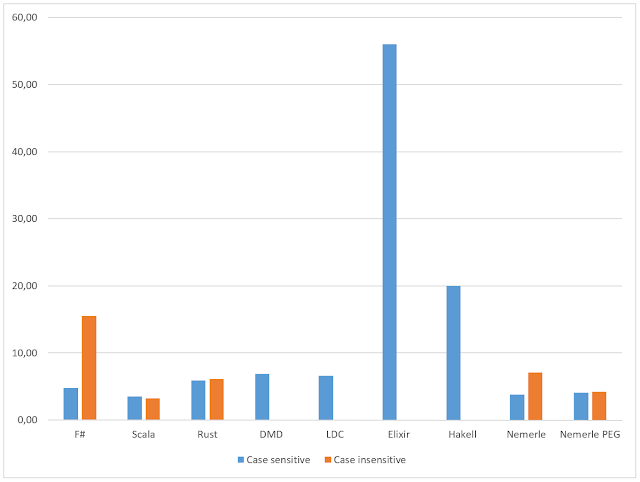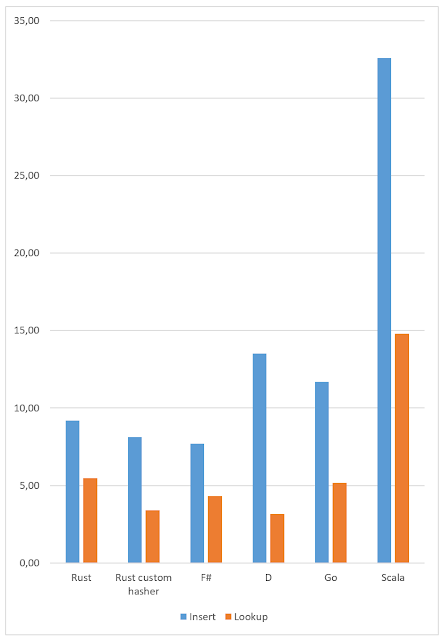Is Ruby such a good choice?
Let's see the Fibonacci implementation is C#, Ruby and Python.
C#:
Ruby:
Python:
As for me, C#'s Enumerable.Range() is somewhat messy compared to Ruby's and Python's variants.
Ruby's optional parentheses around arguments seem just right, as well as 'return' keyword which now looks spare in C# and Python for me.
Ruby's 40.times expression looks a bit weird, however, we could use more 'normal' loop like
for i in 0..39.
Python's absence of 'end' or '}' is the best thing in the whole language. I'm not joking.
So, I can't judge at the moment whether Ruby or Python code is more expressive or readable.
What about performance, C# wins with 9 secs, followed by Ruby with 1 minute and the Python variant took as much as 2 minute to execute. I must say that I don't bother about performance since in real life applications such numeric calculations encounter very rare and should not be done in dynamic scripting languages like Ruby or Python.
C#:
Ruby:
Python:
As for me, C#'s Enumerable.Range() is somewhat messy compared to Ruby's and Python's variants.
Ruby's optional parentheses around arguments seem just right, as well as 'return' keyword which now looks spare in C# and Python for me.
Ruby's 40.times expression looks a bit weird, however, we could use more 'normal' loop like
for i in 0..39.
Python's absence of 'end' or '}' is the best thing in the whole language. I'm not joking.
So, I can't judge at the moment whether Ruby or Python code is more expressive or readable.
What about performance, C# wins with 9 secs, followed by Ruby with 1 minute and the Python variant took as much as 2 minute to execute. I must say that I don't bother about performance since in real life applications such numeric calculations encounter very rare and should not be done in dynamic scripting languages like Ruby or Python.



Comments